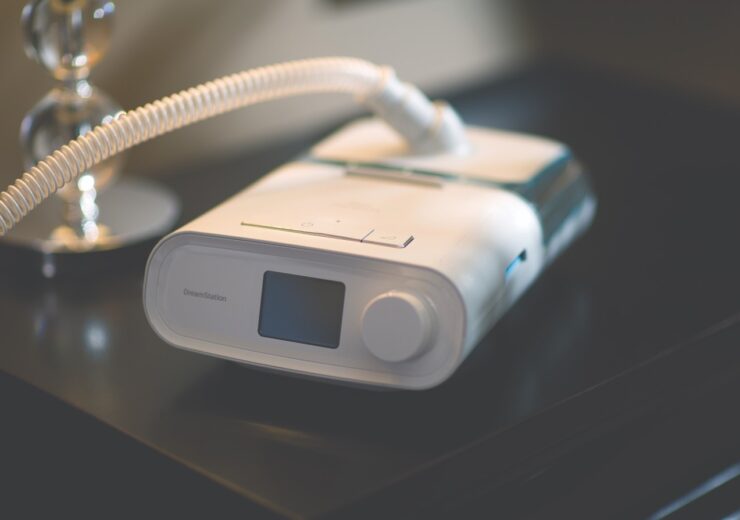The tests were performed to assess potential health risks with the polyester-based PE-PUR sound abatement foam in specific CPAP, BiPAP and mechanical ventilator devices

The Dreamstation 1 device. (Credit: Koninklijke Philips N.V.)
Royal Philips’ subsidiary Philips Respironics said that the results of an independent test and research programme on its respiratory devices involved in a global recall have shown limited health risks.
The tests were performed to assess potential health risks with the polyester-based polyurethane (PE-PUR) sound abatement foam in specific continuous positive airway pressure (CPAP), bilevel positive airway pressure (BiPAP), and mechanical ventilator devices.
Last year, the Netherlands-based firm recalled many breathing devices and ventilators that are intended for the treatment of sleep apnea. The recall was driven by the possibility of the foam used in the device degrading and becoming toxic, and thus carrying potential cancer risks.
The Dutch health technology company said that the findings from the tests showed that exposure to emissions of particulate matter from degraded foam in first-generation DreamStation devices that were not exposed to ozone cleaning is unlikely to result in any notable harm to health in patients.
As per the results, exposure to emissions of volatile organic compounds is not expected to lead to long-term health consequences for patients. The presence of visible foam degradation in inspected returned devices was found to be low, the health technology firm added.
In the case of devices exposed to ozone cleaning, Philips found that ozone cleaning aggravated foam degradation.
Philips CEO Roy Jakobs said: “Over the past 18 months, we have focused on gaining more clarity about the safety of the devices affected by the June 2021 field safety notice, and providing replacement devices to patients as fast as we can.
“The comprehensive test and research program has yielded extensive data and results for the first-generation DreamStation devices, as published today and presented in the press release, and we now have a better understanding of the potential health risks compared to the limited insights that we had in early 2021.”
The firm claimed that the test has been performed along with five independent, third-party qualified experts, certified testing labs, as well as an external medical panel.
Philips Respironics anticipates completing nearly 90% of the production this year for the delivery of replacement devices to patients.
